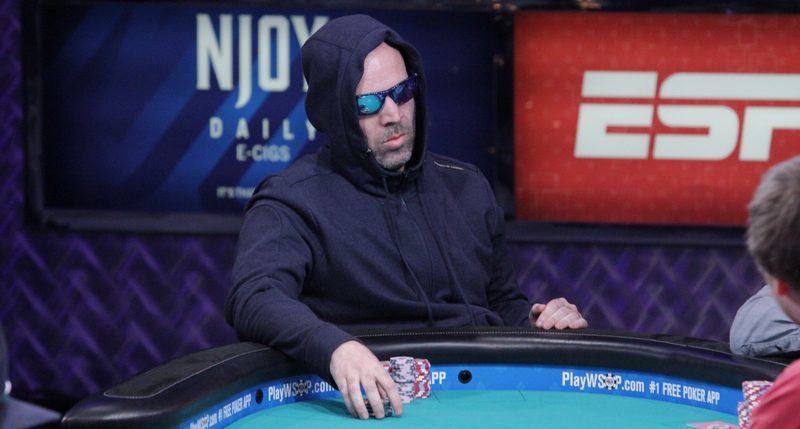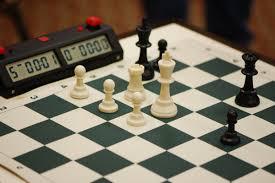






WSOP Main Event Final Table Reinvigorates Shot Clock DebateWill Poker's Most Prestigious Event Ever Have Time Constraints On Decisions? |
|
|
 It was another World Series of Poker main event final table and another round of debates pertaining to some form of a shot clock in poker.
It was another World Series of Poker main event final table and another round of debates pertaining to some form of a shot clock in poker.
The 2015 WSOP main event concluded early this week with poker pro Joe McKeehen taking home the $7.6 million top prize, and while his dominating performance has received plenty of attention, it’s how to tweak the game of tournament poker that seems to currently be the buzz of the poker world in America.
In an effort to build excitement for the WSOP main event and to increase ratings for the tape-delayed televised shows, the WSOP created the November Nine for the 2008 no-limit hold’em championship, which delayed the play of the final table until the fall so that the finale could be broadcasted nearly live to millions of Americans. While it has given poker an unprecedented feel of a sporting event, there has been concern expressed by many in the poker community that the speed of play, showcased on TV screens across the nation, is detrimental to the goal of bringing new people into the game.
It wasn’t the overall length of the final table that had some concerned—it took 109 fewer hands to crown this year’s champion than it did in 2014—but it was the possibility that poker appeared dull. There was a level where it took an average of nearly four minutes to play a hand.
The speed of play is a legitimate concern, but a possible solution has proven to be complicated.
Shot clocks aren’t unheard of in tournament poker. The Dusk Till Dawn and the Super High Roller Bowl tournaments this year used shot clocks for players, and the World Poker Tour has been considering the idea. But never before has it been used at the WSOP, the preeminent tournament series in the world.
 Poker Hall of Famers Phil Hellmuth and Daniel Negreanu, who were both doing commentary for the 2015 main event final table, are in support of a change. “Without significant rule changes I’m concerned live poker on TV may do more harm than good,” Negreanu said on social media this week. “So many people are turned off by the slow pace of play.” Hellmuth agreed, saying: “We need to change the rules of poker; slow play should be warned and then penalized.”
Poker Hall of Famers Phil Hellmuth and Daniel Negreanu, who were both doing commentary for the 2015 main event final table, are in support of a change. “Without significant rule changes I’m concerned live poker on TV may do more harm than good,” Negreanu said on social media this week. “So many people are turned off by the slow pace of play.” Hellmuth agreed, saying: “We need to change the rules of poker; slow play should be warned and then penalized.”
Poker legend Doyle Brunson also chimed in, calling the action “incredibly boring,” but he did admit that he “never really liked watching anyway” because he would prefer “to play, not observe.”
Some of the criticism fell on November Niner Ofer Zvi Stern, who wound up hitting the rail in fifth. Many people were upset about some of his preflop decisions taking too long, but after being approached by the WSOP regarding the speed of his play, he tweaked his game and things were better.

While other tours may take steps to speed up the game through the implementation of a shot clock, it doesn’t sound like the WSOP will anytime soon.
“The first thing that scares me when I think about the shot clock is that if you put someone on a shot clock, and everybody is on that same shot clock, then everybody is going to use that same amount of time before they act every single hand,” Effel said. “So that guy who may have folded in five or 10 seconds are now taking 30, and that might pose a problem. I don’t know how it would play out naturally. It would need some more R and D and some trial to see whether or not it would be good.”
For Effel, poker is a game that can be played with “respect” and that if tournament officials communicate well with players then there really isn’t a need to alter the game this drastically. Poker has been a “gentleman’s game,” Effel said, and that should be remembered. At least on some level, the players themselves must play a role in policing the game.
“I would rather have players all just be nice to each other and have a good competition and be mindful and respectful than having to put people under these constraints,” Effel said. “I think that would create a more adversarial environment. At the end of the day, as much as we want it to be a great show for the viewers and everybody at home and get new interest in the game, the fundamental essence of the game is to have the best competition that you can and to have rules that will govern things that will be fair to everyone.”
Long-time tournament director Matt Savage, who once worked with the WSOP, echoed similar feelings. While he admitted that the system we live by today, where it’s up to the players to “call the clock” on someone they believe is taking too long, is fundamentally flawed, especially for preflop decisions, a shot clock is by no means an easy decision for the WSOP main event final table.
“It’s not every day that poker players are making life-changing decisions for millions of dollars,” Savage said. “That needs to be considered. If someone was tanking preflop in my $75 buy-in, I’m for sure stepping in. At the WSOP final table, it would have to be other players at the table complaining.”
Despite the concerns, Negreanu, who represents PokerStars, the world’s largest online poker site and a major competitor to the WSOP, has been very detailed in his proposals to speed up the tournament game. He is a big advocate for a time bank similar to chess.
 “I think we should use a chess clock just for the final table where each player is given an equal amount of time,” Negreanu said as the final table was unfolding. “Every two-hour level players get 20 seconds to act plus an extra five-minute chess clock that is reset every level. The clock starts after 20 seconds. If your chess clock hits zero you must make all your decisions in 20 seconds until the end of the level. If a player is mid-hand and his chess clock hits zero he can take as much time as he wants. The next hand, though, he is on a 20-second clock.”
“I think we should use a chess clock just for the final table where each player is given an equal amount of time,” Negreanu said as the final table was unfolding. “Every two-hour level players get 20 seconds to act plus an extra five-minute chess clock that is reset every level. The clock starts after 20 seconds. If your chess clock hits zero you must make all your decisions in 20 seconds until the end of the level. If a player is mid-hand and his chess clock hits zero he can take as much time as he wants. The next hand, though, he is on a 20-second clock.”
As many have noted, using a chess clock for an entire tournament would likely be too costly, but for a major TV final table it could be done effectively and monitored by those away from the table. The dealer could focus on dealing.
Poker’s appeal on ESPN was one of the reasons for the boom a little more than a decade, and as online poker in the country makes a slow comeback, re-inventing how the game is presented to the masses is an important component to poker’s long-term success.
